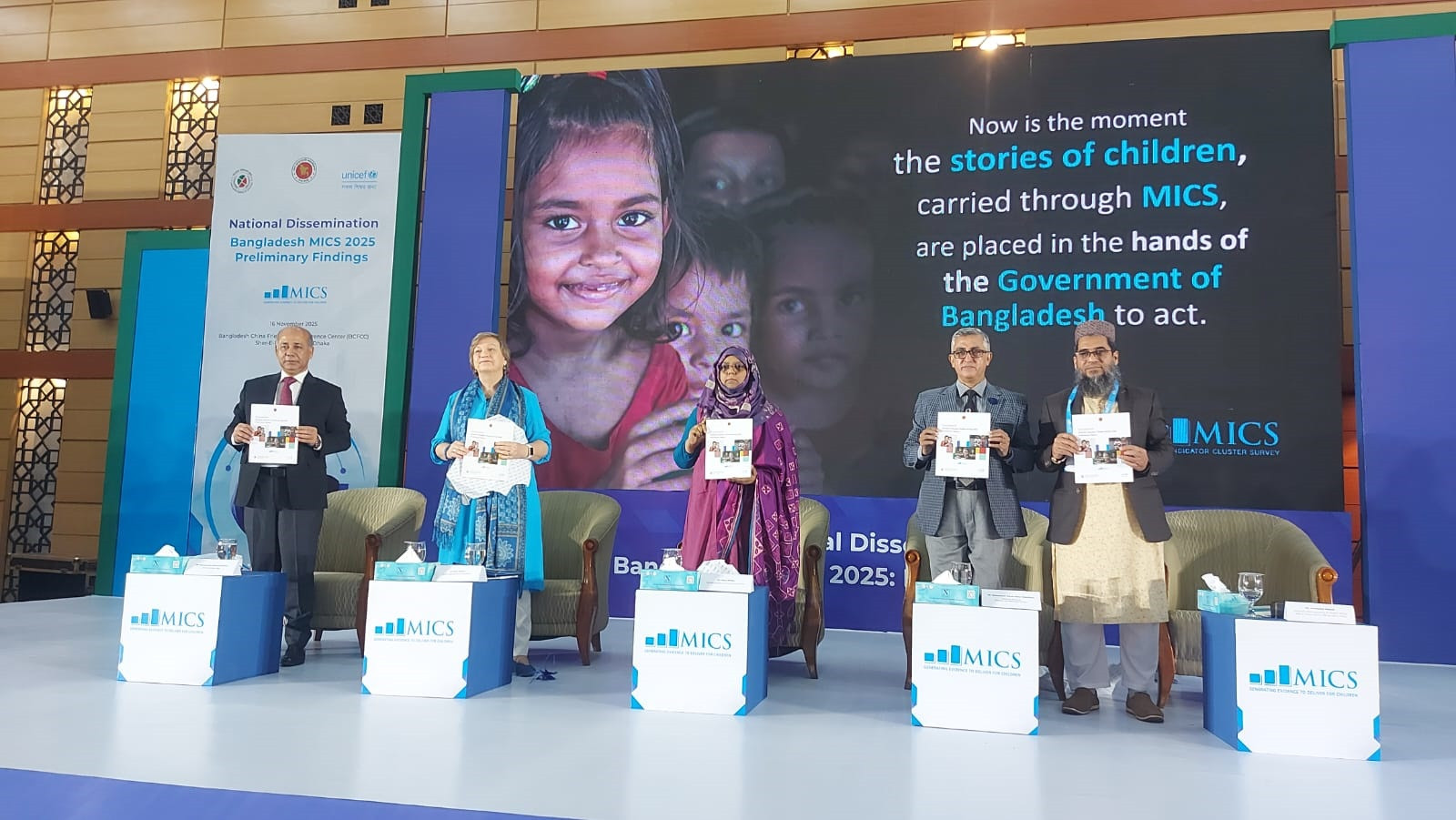Child marriage declines to 47.20%, yet persists as a major concern: Survey
Experts point out that early marriage continues to drive a range of poor health outcomes for young mothers and their children
Daily Sun Report, Dhaka
Published: 16 Nov 2025

Photo: Courtesy
Child marriage in Bangladesh has declined over the past six years, but the pace of progress remains far too slow to meet national or global targets, according to the preliminary findings of the Bangladesh Multiple Indicator Cluster Survey (MICS) 2025.
The new survey, conducted by the Bangladesh Bureau of Statistics (BBS) with support from UNICEF, shows that 47.20% of girls are married before the age of 18, down from 51.4% in the previous MICS 2019. While the drop signals gradual improvement, the fact that nearly half of all girls are still entering marriage before adulthood underscores the scale of the challenge ahead.
Experts point out that early marriage continues to drive a range of poor health outcomes for young mothers and their children.
Girls who marry early are more likely to experience anemia, malnutrition, and complications during pregnancy, and their babies face higher risks of being born underweight, falling ill, or dying before their fifth birthday.
The MICS 2025 findings reflect this pattern. More than half of pregnancies are affected by anemia (52.8%), one in six infants are born with low birth weight (16%), and newborn deaths remain high at 22 per 1,000 live births. Rising rates of wasting and declining early breastfeeding further add to the concerns.
These numbers show that reducing child marriage is not just a social issue—it is central to improving maternal and child health outcomes.
Despite this, the survey also highlights encouraging progress in women’s access to health services. Antenatal care coverage has risen to 89.7%, institutional deliveries have reached 71%, and skilled birth attendance is now at 77.6%. Stunting among children has fallen from 28 to 24%.
The contrast between health-service improvements and the slow decline in child marriage suggests that community norms and economic pressures remain major barriers. Development partners stress that better enforcement of laws, investment in girls’ education, and targeted support for vulnerable families will be essential to accelerate change.

